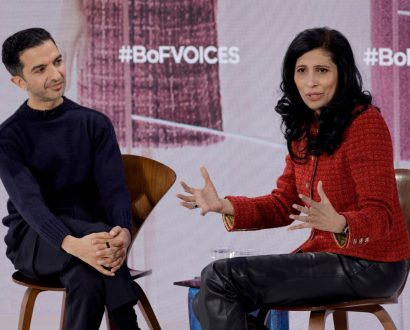Once every 4 years, the world’s best athletes come together to compete for the ultimate prize — an Olympic gold medal. Thousands of hours of practice and hard work come down to one defining moment. One misstep, one miscalculation, one error in judgement can make the difference between success and failure. Some athletes are able to take their performance at the Olympics to the next level, while some world champions fail to produce their best at the time when it matters most.
So what do Olympic Champions have in common? And, as leaders, what can we learn from them?
-
They Focus
There’s a good reason why you rarely see an Olympic gold medallist compete in more than one sport — it is exceptionally rare for an Olympic swimmer to jump out of the pool to compete on the track. Why? Because focus equals power. The same principle applies for leaders. If leaders spread their attention across too many areas, they dilute power and energy. Leaders succeed when they have a laser-like focus and exert energy and attention where it matters most. As the great Greek philosopher ‘Anonymous’ once said: “Starve your distractions, feed your focus.”
-
They have a vision
I had the privilege of working with a very successful Australian swimming team in the lead-up to the Olympics a few years ago. They dedicated significant time into developing a very clear vision about what they were committed to achieving. It wasn’t just few lines on a piece of paper either. They understood the value of neuro linguistics and had great clarity around what they would see, hear and feel when they achieved their Olympic ambitions. Great leaders don’t just have a clear vision for the future; great leaders share a common vision with those who will help make that vision a reality.
-
They do the work
“If you want to be the best, you have to do things that other people aren’t willing to do,” says Michael Phelps, 23-time Olympic gold medallist. We often underestimate what is actually required to be the best. It is not just about the thousands of hours spent training and competing; it also involves regularly looking for ways to get the edge on the competition and being disciplined to do the work (even when you don’t want to).
-
They utilise their strengths
Usain Bolt is reported to have over 80% fast-twitch muscle fibres, which is perfect for explosive movements like sprinting. No doubt he could compete at a high level in a number of different sporting events, but his natural skillset and passion lies with sprinting. Great leaders understand their own strengths and the strengths of the people that work for them, and they learn to utilise them as much as possible. This means delegating key responsibilities to others who complement other unique skillsets.
-
They look after themselves
Olympic champions know that to be successful they need to be disciplined in looking after themselves. It sounds like a no brainer, but from my experience, many leaders don’t pay enough attention to this. A number of years ago, I worked as a corporate health manager where we assessed the health and wellbeing of hundreds of business leaders around Australia. We found that generally, the more senior someone was in a business, the greater their stress levels, and the less likely they were to get adequate sleep, eat the right foods and exercise regularly. For sustained success, the best leaders commit to looking after themselves each day.
-
They see failure as a feedback mechanism
Everyone who is currently the best, was once just starting out. Knock-downs and slip-ups are going to happen. Olympic gold medallist, Dan Collins believes that failure is not the end of the journey, but the start of it. He said that it is an important feedback mechanism, which means: ‘I am not good enough…yet’. The focus then needs to shift towards asking: ‘What do I need to do next to be good enough?’ Great leaders see any failure as a chance to begin again more successfully.
If your workplace was handing out medals for great leadership, would you be standing on the podium? And if not, which of the key lessons from Olympic champions will help take your leadership ability to the next level?





